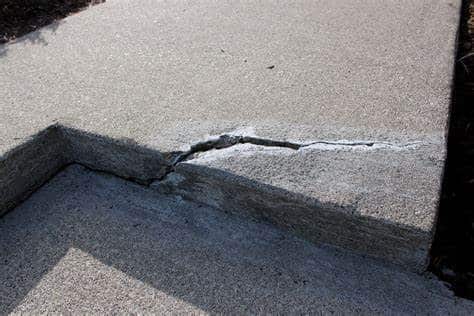Why Heat Causes Cracks In Concrete In Lakeside Ca?

- One of the primary causes of cracks in concrete due to heat is the natural cycle of thermal expansion and contraction. As the temperature rises, the concrete expands. When the temperature falls, it contracts. This constant back and forth can result in stress within the concrete, leading to cracks over time.
- When concrete is laid, it must be cured, a process that involves maintaining adequate moisture for it to harden effectively. Heat can speed up the evaporation of water, causing the concrete to dry out too quickly and making it prone to cracks.
- Concrete structures are often combined with steel reinforcements. These two materials expand at different rates under heat, creating internal stresses that lead to cracks.
- Over time, heat can cause concrete to lose water, leading to shrinkage. If the shrinkage is restrained by the subbase or reinforcements, tensional stresses can develop, causing cracks.
- If a concrete mix is not properly proportioned, it can be more susceptible to heat-related cracking. For instance, a mix with too much water will shrink more when exposed to heat, leading to larger cracks.
- Construction joints are intentionally placed in concrete structures to provide room for expansion and contraction. If these joints are not properly installed or spaced too far apart, heat-induced expansion can lead to cracking.
- Extreme heat conditions, such as those experienced in desert climates, can directly affect the concrete’s structural integrity, making it more susceptible to cracking.
FAQs
How Can Heat-Related Cracks In Concrete Be Prevented?
There are several ways to prevent heat-related cracks in concrete. These include using a proper mix proportion, ensuring adequate curing, installing construction joints at the right intervals, and protecting the concrete from extreme weather conditions.
Can Heat-Induced Cracks In Concrete Be Repaired?
Yes, heat-induced cracks can be repaired using various methods such as epoxy injections, routing and sealing, stitching, and others. However, it’s important to address the root cause of the cracking to prevent future issues.
Does Heat Always Cause Cracks In Concrete?
While heat can contribute to the formation of cracks in concrete, it’s not the sole culprit. Other factors like freeze-thaw cycles, overloading, and poor construction practices can also cause concrete to crack.
Conclusion
While concrete is a robust and versatile construction material, it’s susceptible to environmental factors like heat, which can cause cracks. Understanding the reasons behind heat-induced cracking in concrete is essential in its prevention, ensuring longevity of the structures built with it. For more information, contact Concrete Contractor Lakeside Ca at (619) 678-0052.